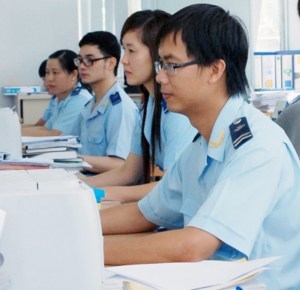Experience buy generators
Where ever you live regional power cut schedule? Today many people have started to ask each other giggle generators to equip their rooms when the power grid.
The Law on Customs was passed by the National Assembly on June 29, 2001, and took effect on January 1, 2002, and the Law amending and supplementing a number of articles of the Customs Law was passed by the National Assembly on June 14, 2005. , which came into effect on January 1, 2006. The Customs Law since its inception has contributed to promoting the administrative reform process, creating favorable conditions for investment and business development, ensuring economic security, sovereignty interests and national security. . However, the current Customs Law has revealed limitations and inadequacies that need to be revised.

The need to amend the Customs Law
The amendment of the Customs Law comes from the following reasons:
- Stemming from the requirement of extensive international integration that the reality of external economic development in the immediate and long term sets forth.
- The amendment of the Law on Customs creates a legal corridor for the modernization of customs operations, widely applied to the popularization of electronic customs, to better meet the requirements of the socialist-oriented market economy.
- From the requirements of administrative reform, the reform of customs procedures towards a more open, transparent and effective customs operation, and at the same time create a legal basis to improve efficiency and effectiveness. protecting national sovereignty interests, preventing and combating smuggling and commercial fraud.
- To create a unified and synchronous legal environment applied in the economy and overcome the limitations and inadequacies of the current Customs Law.
Comprehensive renovation of customs operations
The point of view throughout the process of developing the revised Customs Law is to comprehensively renovate customs operations by facilitating the application of modern customs management in accordance with international practices, ensuring political security. , sovereignty interests and national security; contributing to attracting foreign investment and improving the domestic and international competitiveness of enterprises, promoting economic growth. In which, set out 04 objectives when amending the Customs Law. Specifically:
The first is to create a legal foundation for the implementation of the socio-economic development strategy 2020-2030 approved by the National Assembly, the financial development strategy, and the customs development strategy approved by the Government and the Prime Minister. approve.
The second is to amend and supplement regulations to contribute to the strategy of international integration and international economic integration proposed by the Party and State; consistent with international commitments Vietnam has just joined.
The third is to renovate the contents and articles of the Law in the direction of increasing regulations to reform administrative procedures; reforming customs procedures in the direction of simplicity, clarity, publicity, convenience, uniformity, trade facilitation, ensuring compliance with international practices, implementation of electronic customs, national single window creating favorable conditions for businesses, serving socio-economic development.
The fourth is to improve the capacity and efficiency of customs operations in performing the task of protecting national sovereignty and economic security; improve effectiveness and efficiency in the prevention of smuggling, illegal cross-border transportation of goods, and commercial fraud; strengthen the coordination between state agencies and organizations and individuals related to customs authorities in the implementation of customs legislation.
According to MP
source: General Department of Customs